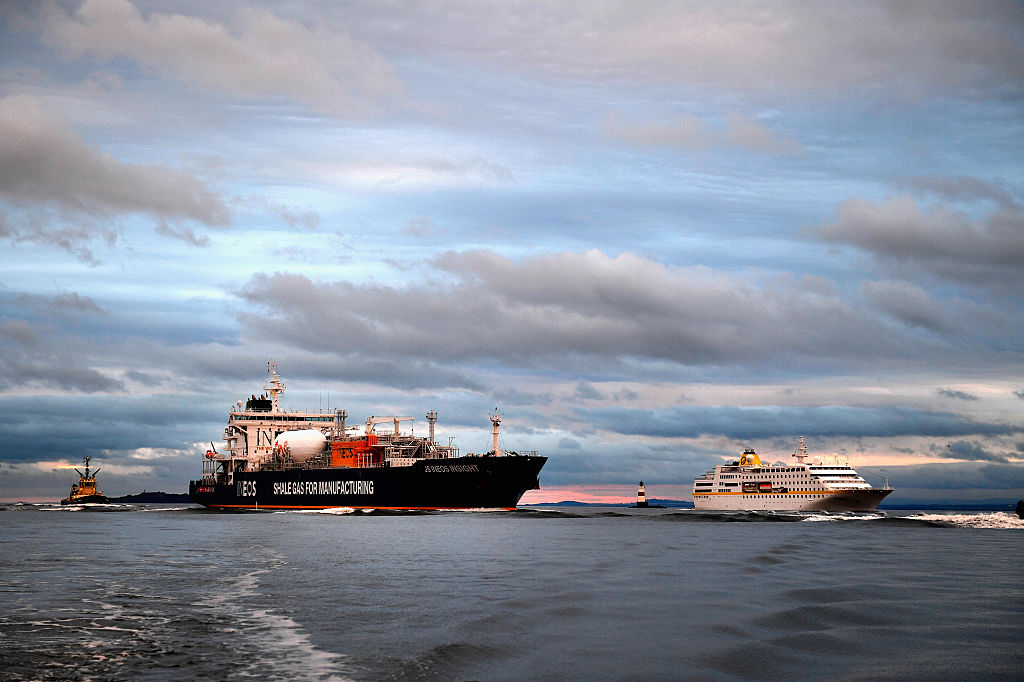
When he finished school Allan Dickson wanted to continue studying, but the prospect of student debt put him on an unconventional path.
“My guidance teacher gave me a book called sponsorship for students, and it was basically a big list of companies that would sponsor somebody to go to college or university,” he recalls.
Dickson sent out applications and was accepted on a cadetship with oil and gas company Shell, studying part-time at college and working part-time on ships. “You earned a salary while you were doing it. It wasn’t a huge salary, but it was more than any of my friends who were going to university,” he tells Spotlight.
But the cadetship continued beyond his studies. For the next 20 years, Dickson stayed in shipping, working his way up to the role of second engineer, reporting to the chief engineer, who is responsible for all the mechanical and electrical equipment onboard a vessel. “You look after the engineering team and you look after the maintenance of the engine room,” Dickson explains.
For ten of those years, Dickson shipped oil and gas, transporting liquid natural gas (LNG) and liquified petroleum gas (LPG). This is one of the reasons he has developed an interest in the transition to net zero. Eighty per cent of goods, from food to iPhones, are moved around the world by ship, as is much of the energy we use in the form of oil and LNG. How ships are powered is also important: the sector contributes around 3 per cent of greenhouse gas emissions globally – but this is rising and predicted to reach 130 per cent of 2008 emissions by 2050.
Shipping energy, like most long-haul journeys, is a “nine-to-five” job, Dickson says. “Get down to the engine for nine o’clock, the duty engineer does a set of rounds and inspections, and then we had our planned maintenance to get on with.”
But it can be six weeks or even up to two months between ports. The pace can be quite relaxed, and the job can be isolating. “You’re obviously out of phone signal for a large part of that time and you do feel far more separated from what’s going on at home,” he says.
The move to new sources of power for shipping and transporting energy cargoes is creating fresh challenges, too. “The biggest thing in my domain is the training of seafarers in the new technologies that are coming out,” Dickson says. There is an International Gas Fuel Ship Code, for example, with training behind it, but Dickson describes it as “lumped-together” and “one size fits all”, and says that it does not address the different fuels coming into use.
“We’ve got ships with large batteries nowadays running around and there’s no real kind of training for that,” he says. Battery-powered ships means a greater need for electricians and electrical engineers than there has been before, and the training for chief engineers to use them properly.
“I’m quite lucky in my company that they pay for training, which is great, but there are other companies I know of that don’t pay for training,” he says. Self-funding is not a viable option for seafarers, particularly with some new technologies that require placement on ships using them already. This, Dickson fears, will lead to experienced and new seafarers facing a “catch-22” situation where they do not have the qualifications and experience to work on new ships, and do not have the means to get the necessary qualifications and experience to be hired.
Needs have changed even in cases where only the cargo being carried is different. For example, with transporting batteries for goods such as electric vehicles, seafarers need to be trained and prepared for the risks associated with what they are shipping, and to have the procedures and equipment to deal with them. The Danish Institute of Fire and Security Technology recently simulated a fire on a ship carrying electric vehicles. “It’s just making sure that when we introduce new technologies into our sector, that we really do have a proper look and a proper risk assessment to make sure that we are not introducing new hazards,” he says.
For instance, LNG ships have got gas detectors, double walled pipes, firefighting systems, extraction systems, and explosive-proof equipment. But there’s a new hydrogen ship demonstration project out and running that will have different safety needs. “Whereas LNG, which is quite a large molecule, doesn’t leak out of a pipe flange, hydrogen quite possibly will, because it’s so much smaller. So the tolerances involved in making those pipelines gas tight are different,” Dickson says.
Dickson believes that over the next ten years the range of fuel systems for shipping, such as hydrogen, will expand. Then the industry will settle on what works for particular types of shipping and sectors. “I don’t think it’s going to be one system that will work for everybody,” he says. One option is ammonia, which was used on refrigeration ships but removed due to the hazard it posed to crews.
“It’s about everybody working together,” Dickson says. Seafarers bring that important perspective on how practical a system is to run, to maintain, on a day-to-day basis as frontline workers. “It’s about ease of use for us,” he says, “it’s about making sure that our voice is considered.”
This article is part of a series exploring the front line of the net zero transition. Read more here


